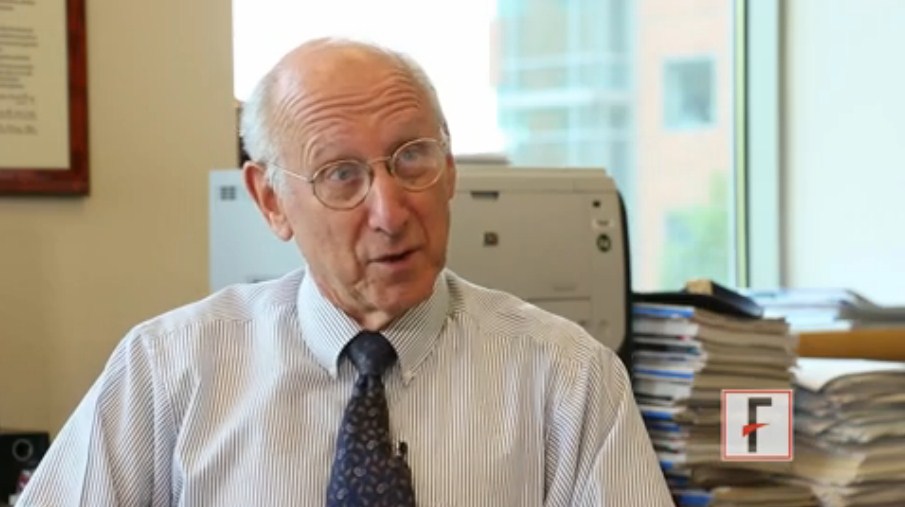User login
BETHESDA, MD. – We visited the office of Dr. Steven A. Rosenberg, chief of the Surgery Branch at the National Cancer Institute, and a pioneer of adoptive cell transfer using tumor infiltrating lymphocytes (TILs) in melanoma patients. We asked for his thoughts on recently published work on TILs in breast cancer and on the future of immunotherapy for breast cancer.
He explained that the success of immunotherapy for breast cancer, he believes, lies in being able to identify the mutations driving tumor growth and manipulating the immune system to recognize those mutations. Dr. Rosenberg began studies in July to investigate this hypothesis.
Listen to the wide-ranging discussion with Dr. Rosenberg on issues from the immunogenicity of epithelial tumors to checkpoint inhibitors and the future of chemotherapy.
Dr. Rosenberg had no relevant disclosures.
On Twitter @whitneymcknight
BETHESDA, MD. – We visited the office of Dr. Steven A. Rosenberg, chief of the Surgery Branch at the National Cancer Institute, and a pioneer of adoptive cell transfer using tumor infiltrating lymphocytes (TILs) in melanoma patients. We asked for his thoughts on recently published work on TILs in breast cancer and on the future of immunotherapy for breast cancer.
He explained that the success of immunotherapy for breast cancer, he believes, lies in being able to identify the mutations driving tumor growth and manipulating the immune system to recognize those mutations. Dr. Rosenberg began studies in July to investigate this hypothesis.
Listen to the wide-ranging discussion with Dr. Rosenberg on issues from the immunogenicity of epithelial tumors to checkpoint inhibitors and the future of chemotherapy.
Dr. Rosenberg had no relevant disclosures.
On Twitter @whitneymcknight
BETHESDA, MD. – We visited the office of Dr. Steven A. Rosenberg, chief of the Surgery Branch at the National Cancer Institute, and a pioneer of adoptive cell transfer using tumor infiltrating lymphocytes (TILs) in melanoma patients. We asked for his thoughts on recently published work on TILs in breast cancer and on the future of immunotherapy for breast cancer.
He explained that the success of immunotherapy for breast cancer, he believes, lies in being able to identify the mutations driving tumor growth and manipulating the immune system to recognize those mutations. Dr. Rosenberg began studies in July to investigate this hypothesis.
Listen to the wide-ranging discussion with Dr. Rosenberg on issues from the immunogenicity of epithelial tumors to checkpoint inhibitors and the future of chemotherapy.
Dr. Rosenberg had no relevant disclosures.
On Twitter @whitneymcknight
AT THE NATIONAL CANCER INSTITUTE
